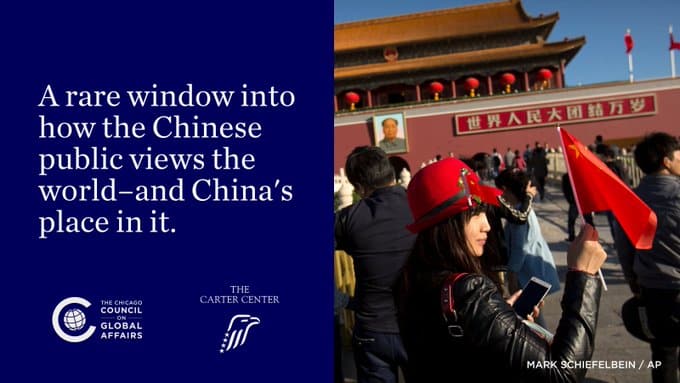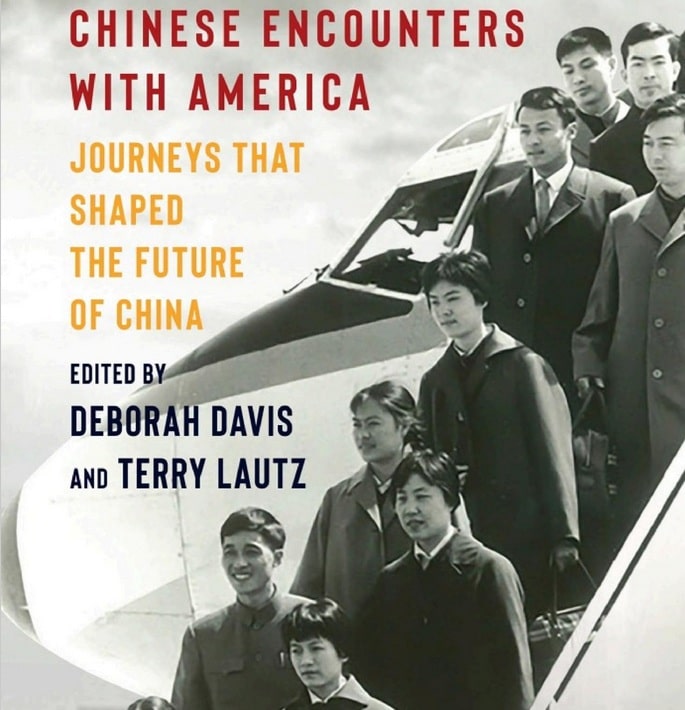Under Pressure: Attitudes Towards China Among American Foreign Policy Professionals
- Analysis
 Michael Cerny
Michael Cerny- 12/13/2024
- 1

In the spring of 2023, when Congress established the House Select Committee on the Chinese Communist Party, CNN’s Fareed Zakaria likened its first hearing to the McCarthy era, remarking, “To watch Tuesday’s hearing of the new House select committee on China was to be transported back to the 1950s.” He expressed concern about what he saw as a “wide-ranging consensus on China that has turned into a classic example of groupthink,” warning that it could steer the United States toward “decades of arms races, crises, perhaps even war.” Zakaria was not alone, with political scientists warning about the potentially dangerous consensus on China.
Despite its significance for American foreign policy, the nature and implications of this consensus remain unclear. Does the foreign policy community feel pressured to conform in its views on China? How do individuals perceive the level of agreement within the community, and is the current discourse better characterized as groupthink, healthy debate, or something else? What are the broader implications for policymaking?
Our study, “Under Pressure: Attitudes Towards China Among American Foreign Policy Professionals,” uses new survey data and semi-structured interviews to address these questions. The Foreign Policy Professionals – China Attitudes Survey (FFP-CAS) surveyed 495 of professionals (primarily think tank employees) in 2023 about their attitudes towards China and U.S.-China policy. The survey included a treatment condition, with half the respondents being asked to provide their names to the researchers and the other half remaining anonymous, allowing us to observe differences in their views under varying levels of anonymity. Additionally, we conducted 55 semi-structured interviews from August 2023 to July 2024, exploring participants’ views on U.S.-China relations, their professional experiences, and their perceptions of the policy discourse in Washington. In both our survey and interviews, we aimed to get a diverse range of viewpoints from professionals across the political spectrum.
Our study produced three core results. First, there exists a substantial amount of variation in policy beliefs towards China among the American foreign policy community. Any `consensus’ that does exist may be around the central framing of China as a competitor nation, but foreign policy elites hold a diverse range of views as to which policies are most appropriate to compete with China. In general, we find that foreign policy professional that lean Republican, white, male, or who have military experience expressed more confrontational attitudes towards China. These differences aside, the distribution of China attitudes shows substantial overlap across the two parties, and substantial variation within parties. Simply placing someone in a “box”—which others have tried to do—proved to be difficult, as many people who appeared “hawkish” on the overall threat might favor “dovish” policy positions, and vice versa. We found the space to be quite fluid overall, with unlikely allies on different issues across different parts of the ideological spectrum. To paraphrase one of our interviewees, there is a consensus around the diagnosis, but not the prescription.
Our study, “Under Pressure: Attitudes Towards China Among American Foreign Policy Professionals,” uses new survey data and semi-structured interviews to address these questions. The Foreign Policy Professionals – China Attitudes Survey (FFP-CAS) surveyed 495 of professionals (primarily think tank employees) in 2023 about their attitudes towards China and U.S.-China policy. The survey included a treatment condition, with half the respondents being asked to provide their names to the researchers and the other half remaining anonymous, allowing us to observe differences in their views under varying levels of anonymity. Additionally, we conducted 55 semi-structured interviews from August 2023 to July 2024, exploring participants’ views on U.S.-China relations, their professional experiences, and their perceptions of the policy discourse in Washington. In both our survey and interviews, we aimed to get a diverse range of viewpoints from professionals across the political spectrum.
Our study produced three core results. First, there exists a substantial amount of variation in policy beliefs towards China among the American foreign policy community. Any `consensus’ that does exist may be around the central framing of China as a competitor nation, but foreign policy elites hold a diverse range of views as to which policies are most appropriate to compete with China. In general, we find that foreign policy professional that lean Republican, white, male, or who have military experience expressed more confrontational attitudes towards China. These differences aside, the distribution of China attitudes shows substantial overlap across the two parties, and substantial variation within parties. Simply placing someone in a “box”—which others have tried to do—proved to be difficult, as many people who appeared “hawkish” on the overall threat might favor “dovish” policy positions, and vice versa. We found the space to be quite fluid overall, with unlikely allies on different issues across different parts of the ideological spectrum. To paraphrase one of our interviewees, there is a consensus around the diagnosis, but not the prescription.

Third, the combined result of these dynamics is to produce a discourse that is skewed towards hawkish China policy prescriptions. In general, our identification treatment did not induce respondents to display more confrontational attitudes towards China. However, subgroup analysis of the set of respondents who experienced “pressure” demonstrates that these individuals do voice more hawkish attitudes towards China when forced to attach their names to their responses. This finding is also supported in the interviews, where many (but certainly not all) respondents noted distinctions in how they express their attitudes towards China in public versus private settings. Though direct censorship and self-censorship do occur, more commonly our subjects revealed the tendency to engage in what we term discourse mirroring— instrumentally framing ideas and recommendations in the prevailing language of threat in order to be more persuasive. This has the effect of what one interview subject called “hawkflation,” with individuals appearing more hawkish and confrontational than they actually are, especially to those who do not know them well.
Collectively, this may produce a degree of pluralistic ignorance, where people in the foreign policy community overestimate support for more confrontational policy positions. This may be why many people—including many of our own interlocutors—perceive “groupthink” on the China issue, despite there being a wide range of viewpoints. Our sense as researchers is that the full range of views is not accurately being proffered or depicted in public settings. One side of the debate is being amplified, and more moderate views are underrepresented.
At a personal level, we benefited greatly from hearing perspectives from a broad range of foreign policy experts, including the ideas of individuals with whom we might disagree, and with whom we would not have normally interacted with in social and professional settings. It was hard to come out of this project and not have more complex, nuanced views of U.S.-China relations than when we started. We would close by noting that Irving Janis’ central prescription for improving foreign policy decision-making is to encourage group members to raise doubts and to question their own assumptions, not just those with whom they disagree. Rigorous intellectual debate is essential to good foreign policy-making, and we hope this paper inspires more.
This issue of The Monitor is the executive summary of Michael and Rory’s research, published at their request. The full working paper can be read here.
The views expressed in this article represent those of the author(s) and not those of The Carter Center.








1 Comment
[…] Cerny)与普林斯顿大学教授祖若水(Rory Truex)共同主持。点击这里查看这项研究的英文论述(Under Pressure: Attitudes Towards China Among American Foreign […]